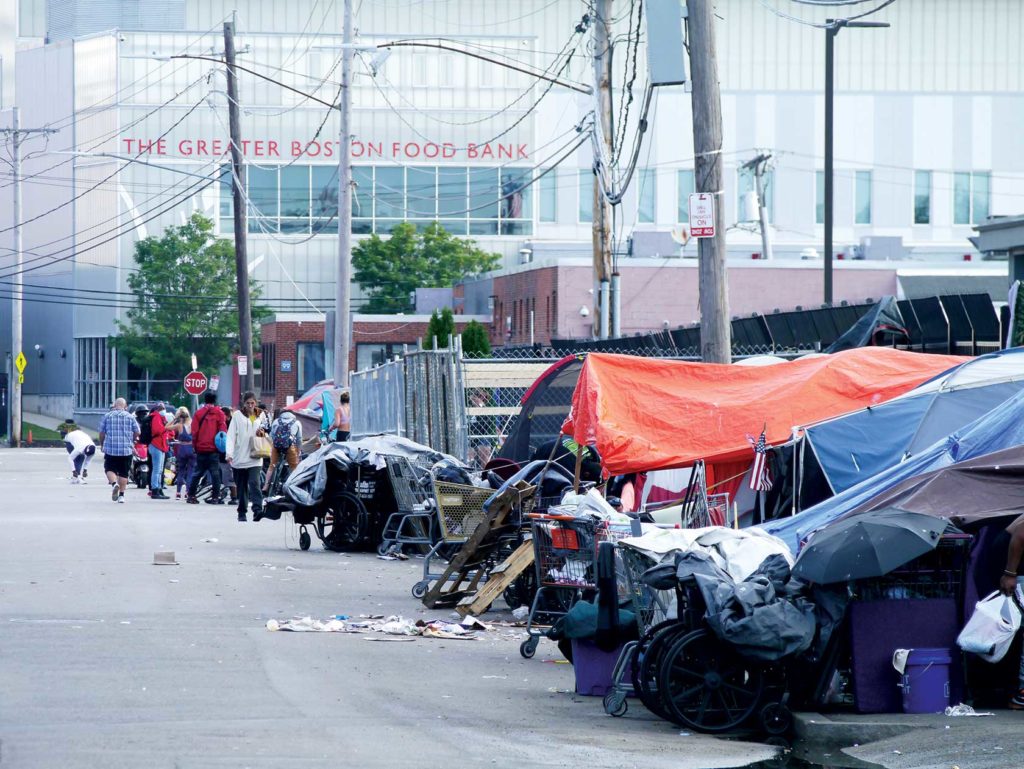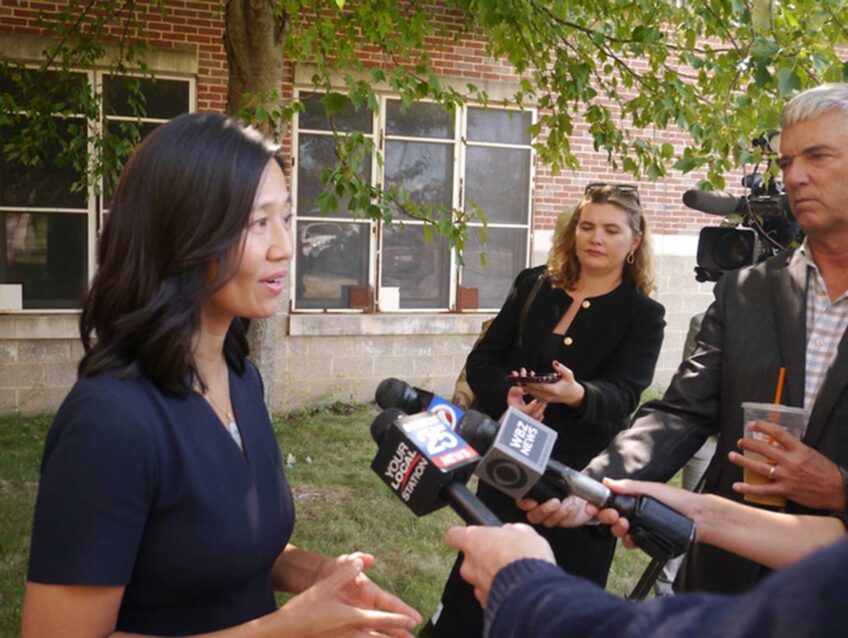
Acting Mayor Kim Janey announced a ban on tents and temporary shelters in Boston at a press conference on Tuesday, Oct. 19.
The action, which Janey implemented under an executive order signed last week, aims to address the ongoing struggle with mental health challenges, drug use and homelessness centered at the intersection of Massachusetts Avenue and Melnea Cass Boulevard, commonly referred to as Mass and Cass, in the South End.
“We cannot let our most vulnerable residents suffer in these encampments,” Janey said at the press conference, citing reports of drug overdoses and sexual assaults.
Along with the executive order, the Boston Public Health Commission (BPHC) also declared substance abuse disorder and unsheltered homelessness a public health crisis.
Under the order, the city, in partnership with the state’s Office of Health and Human Services, has created a central command structure to address the situation and track information regarding shelter and treatment options.
Janey said the efforts aim to focus on health without criminalizing the status of being unsheltered or having a substance use disorder or mental illness.
“The new approach to tents and temporary shelters in our city will be guided by the principles we’ve always held: that public health must guide our work, that unsheltered individuals deserve respect and dignity, that they have a property interest in their belongings, and that we must offer people treatment and shelter and proper notice to remove their items,” Janey said.
Boston Chief of Health and Human Services Marty Martinez said this order presents an opportunity to improve how the city responds to these challenges.
“There must be better options, and the executive order calls on us to create them,” Martinez said.
Removal of tents under the executive order will be enforced, Janey said, but only as a last resort if individuals refuse to take down their tents. Refusal to remove a tent will be considered disorderly conduct.
Under Massachusetts law, disorderly conduct charges can be punished with a fine of up to $150 for a first offense or a fine of up to $200 or six months in jail for subsequent offenses.
“Even [when tents are removed], we are working with the District Attorney’s Office and the courts to ensure that enforcement itself is a pathway to services, treatment and shelter,” Janey said.
She also said individuals will not be told to move their belongings unless there are resources and a bed available to support them.
According to the executive order, “… no City of Boston employee will require an unsheltered individual to remove their encampment from public property unless there is shelter available for that individual.”
The order also directs the Department of Neighborhood Development and BPHC to create new beds for residents experiencing homelessness. These beds will include low-threshold beds, meaning there are fewer requirements to access them, in order to support rehousing and stabilization efforts.
Janey said the city currently has access to approximately 170 beds, but Martinez said that number will constantly fluctuate.
Both Martinez and Janey spoke of the COVID-19 pandemic as a key factor that exacerbated the situation and led to the prohibition on tents.
“Like many issues facing our city, COVID-19 has exacerbated longstanding persistent challenges. This is especially true for individuals who are vulnerable because of substance use disorder, mental health and homelessness,” Janey said.
Janey said the work has already begun. The central command leadership met last week. Martinez said he is hopeful that leadership setup will allow for real-time responses with real solutions.
On Monday of this week, initial steps began, with city workers going tent-to-tent handing out notices indicating tent-dwellers will need to leave, giving people plastic bins to pack up items in preparation and informing them about rehab or shelter services.
Martinez said that getting people out of tents is the “best public health approach” to the issue because it allows for individuals to get better access to resources.
“The goal of trying to get people into treatment or support is really to help people stabilize their lives, and in order to help people stabilize their lives, you can’t do that in a tent,” Martinez said. “You can’t do it in a tent, on the street when you’re being preyed on by others. And so, the real goal is to get people out of that environment that is not safe for them and safe for others, and to get them on a better path.”
Janey warned that, while the executive order takes important steps, Bostonians should not expect things to change overnight.
“If folks are looking for a magic moment where — poof! — everything is gone, that is not how addiction works,” Janey said.




